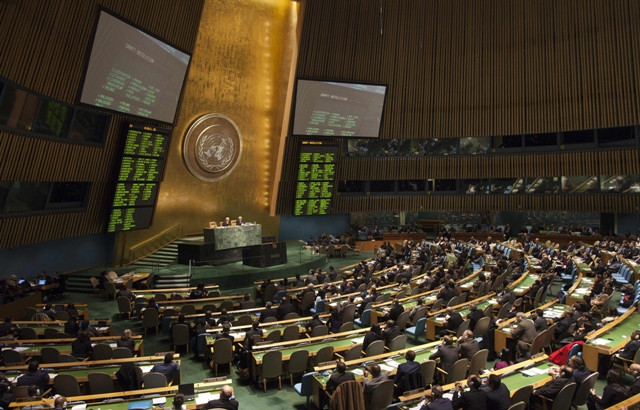UN vote 'unambiguous' warning to Assad: Britain
At the assembly 137 states voted in favour, 12 voted against on the resolution endorsing the Arab League plan.

The UN General Assembly voted 137 to 12 to approve a resolution calling for an immediate halt to Assad's brutal response to protests.
"It sent a clear signal of the international community's condemnation of the Syrian regime's actions and intention to hold to account those responsible for the ongoing atrocities," Foreign Secretary William Hague said in a statement.
"The message is unambiguous. The violence must stop immediately," added the Foreign Office release.
Hague said he would endeavor to find ways of backing the Arab League at the Friends of Syria meeting next week and urged UN Secretary General Ban Ki-moon to appoint a special representative to work alongside them.
"President Assad and the Syrian regime must heed the call of the international community and allow a peaceful political transition to resolve the crisis," he added.
"President Assad and those around him should be under no doubt that we will continue to support the Syrian people in their aspiration for a peaceful political transition in Syria."
China, Russia and Iran were among the nations that opposed the text put forward by Egypt and other Arab states that condemned "widespread and systematic violations of human rights" in Syria.
Seventeen UN member states abstained from voting on the resolution, which came just days after Russia and China joined forces to use their veto power to derail a similar text in the UN Security Council.



















COMMENTS
Comments are moderated and generally will be posted if they are on-topic and not abusive.
For more information, please see our Comments FAQ